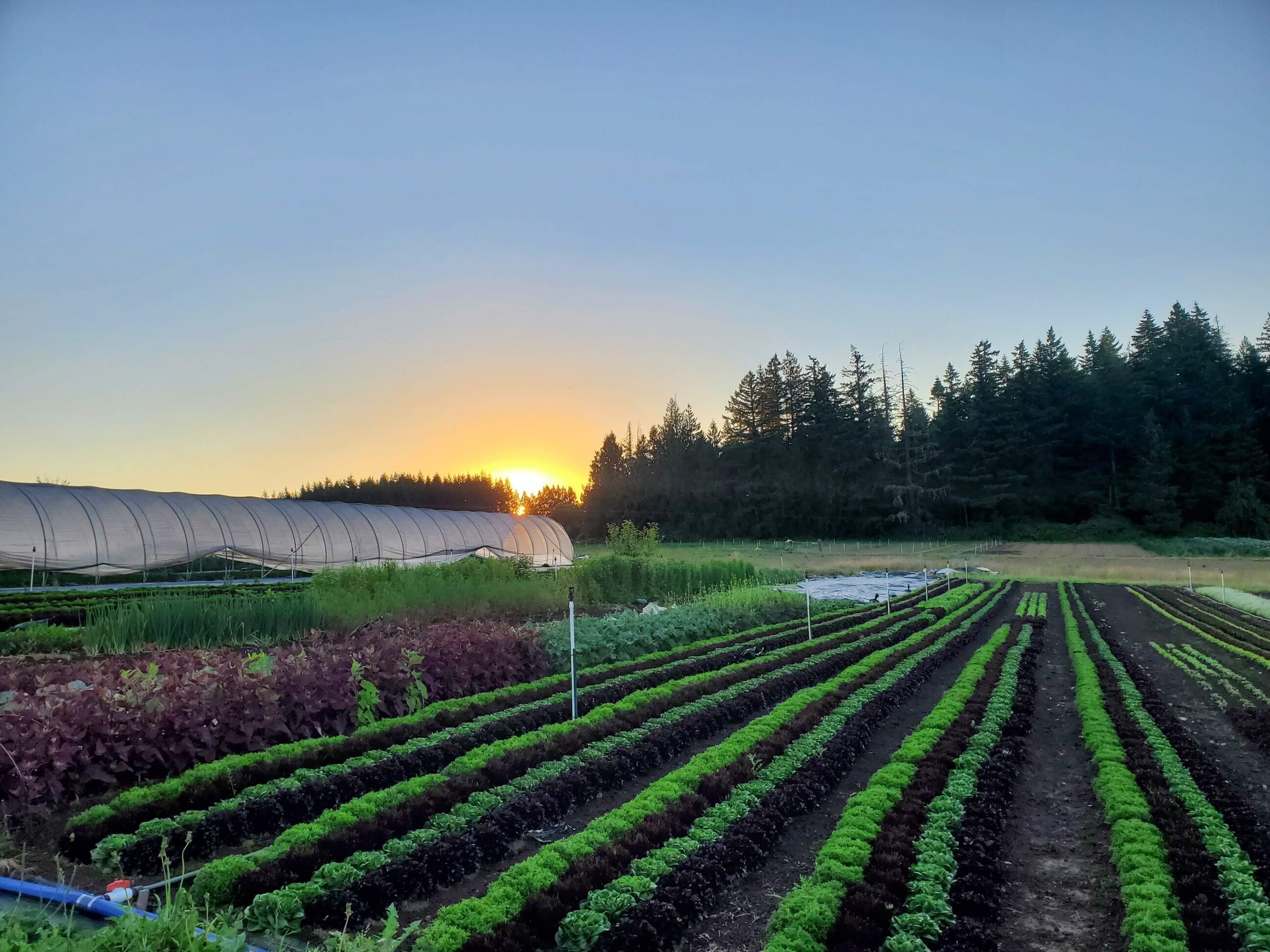
Rows of leafy greens at the Headwaters Farm Incubator near Gresham, Ore., in this provided photo The program provides access to affordable farmland, equipment and resources.
Courtesy East Multnomah Soil and Water Conservation District
Starting a farm, especially as a beginning farmer lacking access to capital or land, can be a challenging undertaking. One incubator farm east of Portland helps farmers overcome some of those challenges, and it’s looking for its next cohort.
The 60-acre Headwaters Farm Incubator program on the outskirts of Gresham provides affordable access to land, equipment and technical support to farmers who’ve been farming for a few years and want to kickstart their businesses, but lack the resources or support to get started.
In Oregon, the value of farmland has increased by 23% over a five-year period ending in 2022, compared with farmland values climbing by just 7% nationally in that time — the market value per acre of farmland can vary on whether it’s irrigated land, non-irrigated or pastureland.
Farmers are also aging out of the industry. The average age of a farmer is around 58, but few younger farmers, especially farmers of color, are replacing them. And there’s a wide range of reasons for that, said Rowan Steele, the program manager at Headwaters.
“There’s a need for land access and that is extremely high. We all know that farmland is incredibly expensive,” Steele said. “And if you aren’t born into a farming family, let alone even a farming community, like what is your route into agriculture? If that’s something that you’re passionate about and you want to pursue.”
The Headwaters incubator is a tax-funded program managed by the East Multnomah Soil and Water Conservation District. Farmers usually get to stay in the program for up to five years.
There, they can rent a plot of land to grow fruit, vegetables, medicinal herbs or flowers while also receiving training on topics like best soil health practices or pest management. After that, they “graduate,” and tend to have a more concrete business plan and a network to continue their operations elsewhere, Steele said.
“The goal is that they are building their business, making the investments in the resources that they’re gonna need to continue to farm after Headwaters, building their markets, making sure that they’re reliable and really refining their production practices,” he said.
At its core, the program is preparing the next generation of farmers that will feed their communities while also creating a robust, sustainable farming system, Steele said.
“It’s what we need to see to feed our communities in a changing climate and with economic instability and all the other forces that make farming hard,” he said. “I think that we’re seeing a lot of passionate new growers. We’re seeing people rethinking what agriculture means, not just to them in their lifestyle and in their business, but in their community.”
The Headwaters Farm Incubator applications will open Oct. 1 and close Nov. 30. You can click here to learn more.




